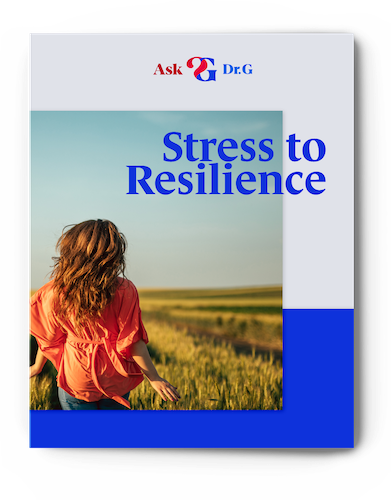 I have a 3 year old son, who is very smart; however, he does not listen very well and cries a lot! What do you recommend to get him to listen? What type of punishment when he does not? How do I get him to stop crying for no reason?
I have a 3 year old son, who is very smart; however, he does not listen very well and cries a lot! What do you recommend to get him to listen? What type of punishment when he does not? How do I get him to stop crying for no reason?
Anonymous, in PA
You have two great questions here. The first, how do I get my 3 year old to listen, I talk about in my 5 Tricks to Stop Yelling at Our Kids. I hope you’ll look there for some solutions.
It’s your second question – how do I get him to stop crying – that I’d like to focus on now.
You’re asking “Why does he cry for no reason?” He doesn’t cry “for no reason.” He cries for no reason that makes sense to you, but that is not the same thing. He has great reasons for crying, in his opinion.
Most often kids cry due to frustration. Smart kids have high expectations that they will get what they want. When they don’t, crying is a totally understandable reaction.
He also might be crying because:
- you told him no
- you told him yes but not in the right way or about the right thing
- he is tired, hungry, not feeling well, cold, hot… you get the idea
- for any number of wild reasons (have you seen ReasonsMySonisCrying.com?)
I know that crying can drive you a little nutty, it does to me as well. Don’t despair, he will cry less if you change your reaction. And (bonus) he’ll listen more.
When he starts crying:
- Check your own reaction. Frustration, anger, guilt, shame – whatever you’re feeling, do your best to take a deep breath and blow it out – anything to dissolve or move past your own emotions. Those aren’t his responsibility.
- Show empathy. Don’t change your mind about whatever happened just before this, but show genuine sympathy for his feelings. In other words, speak to him the way you want to be spoken to if you cry. “I see that you’re sad, and I’m sorry you’re feeling that way.”
- Don’t offer solutions. That’s it. Don’t give solutions, or threats, or tell him why he shouldn’t fee what he’s feeling – that’s disrespectful of him.
- Ask him for solutions. “What do you think would help right now?” When he’s able, get him to focus on finding his own solutions. Yes, I know that he will say the only thing that will help is giving him what he wants. That is not the answer. Stick to the line you drew, and ask for other ideas.
- Try one of his ideas, or let him be. If he has a solution that is not illegal, unethical or fattening – try it! If he won’t problem solve, let him alone (safely) for a bit.
- Praise his effort. Whenever he calms down, let him know that you appreciate the effort he put into feeling better, or explaining his problem, or calming down. All of this shows his resilience. He may not have much yet, but he is learning!
He can learn resilience – the ability to overcome adversity. To do that, he needs you to see that he is facing something that is difficult for him. You don’t have to understand why it’s difficult, or agree that it is. You do have to help him see the steps to recovery, and praise him when he chooses to follow those steps. There are other ways to encourage resilience in kids, so if this doesn’t work I hope you’ll let me know!
Parents, what have you tried to help kids recover faster from frustration?




Comments are closed.